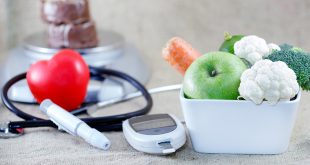Should you be measuring blood sugar levels throughout the day? While it’s true that people with diabetes should measure their blood sugar at regular intervals, there are some distinctions regarding how often to test. This is dependent on whether you have type 1 diabetes or type 2 diabetes, and what medications you are taking.
The tables below summarize target blood sugar levels at different times of day, and how often you should be measuring your blood sugar dependent on factors such as what type of diabetes you have, how recently you were diagnosed, and what medications you take.
What are my blood sugar targets throughout the day?
According to the Diabetes Canada clinical practice guidelines, the following table shows blood sugar targets for people with diabetes.
| Time of day | Target blood sugar levels |
| Fasting (before breakfast) | 4 to 7 mmol/L |
| Before meals | 4 to 7 mmol/L |
| Two hours after each meal | 5 to 10 mmol/L (or 5 to 8 mmol/L if A1C is higher than 8%) |
| Bedtime | 5 to 10 mmol/L (or 5 to 8 mmol/L if A1C is higher than 8%) |
Read more about what normal blood sugar levels are here.
When should I be measuring my blood sugar levels throughout the day?
According to the Diabetes Canada clinical practice guidelines, the schedules for testing blood sugar should be as follows:
| Situation | How often to check blood sugar |
| Type 1 diabetes using multiple daily insulin injections (four or more times per day) or using an insulin pump | Check four or more times per day |
| Type 2 diabetes, taking diabetes medication known to cause hypoglycemia (for example, a sulfonylurea or a meglitinide) | Check at times when symptoms of hypoglycemia occur, or at times when hypoglycemia has occurred previously |
| Type 2 diabetes, and meeting your blood sugar targets | Check once or twice per week, to ensure that your blood sugar targets are being met between A1C tests |
| Type 2 diabetes and not meeting your blood sugar targets
|
Check two or more times per day |
| Newly diagnosed with type 2 diabetes (less than six months) | Check at least once per day (at different times of the day) to learn the effects of meals, exercise and medications on blood sugar |
| Experiencing an illness known to cause hyperglycemia (for example, an infection) | Check two or more times per day
|
7 reasons why you may want to measure your blood sugar?
There are lots of reasons why measuring your blood sugar is a good idea. Blood sugar checks provide useful information for diabetes management, and can help you:
- See if your insulin or medications is working to lower your blood sugar levels.
- Identify blood sugar levels that are high or low.
- Understand how diet and exercise affect blood sugar levels.
- Detect patterns of highs and lows, and fix them as needed.
- Judge how well you’re reaching overall treatment goals.
- Understand how other factors, such as illness or stress, affect blood sugar levels.
- Monitor the effect of your diabetes medications on blood sugar levels.
 Diabetes Care Community Learn, connect and care
Diabetes Care Community Learn, connect and care






